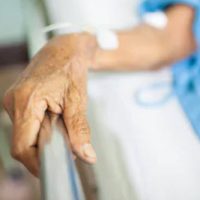How Do Bedsores Occur, And When Are They Malpractice?

Bedsores are wounds that form due to prolonged pressure on the skin. When this pressure restricts blood flow from properly reaching certain areas of skin, the skin cells can die and cause a wound. Bedsores develop frequently on bony areas of the body – such as ankles, shoulders, hips, heels, buttocks and tailbone area – where the skin is more sensitive. Bedsores can develop over a period of days, but sometimes can develop in only a matter of hours.
Who is at the Highest Risk from Bedsores?
Those with medical conditions or other situations that limit their ability to move or change positions frequently can run into issues with bedsores. For example, those limited to chairs or beds for most of the day suffer bedsores far more often than others.
Elderly individuals and those with disabilities fall squarely into the high-risk category due to their limited ranges of motion and time spent lying down or seated. Due to these factors, bedsores are a common nursing home injury anywhere you go. Nursing home staff are trained to remain vigilant about these issues – particularly for patients that are not able to get up and walk around often.
Unfortunately, nursing home patients sustain bedsores at alarming rates. Sometimes this is in spite of great care and attention they receive from their caretakers. Sometimes it is due to negligence by staff at the nursing home. No matter what the cause, family members and friends should know how to spot bedsore issues and know what their loved one’s legal rights are if bedsores are due to negligence.
Signs of Bedsores in Nursing Home Patients
Bedsores usually begin with red or purple marks on skin that has been deprived of oxygen for more than 2 to 3 hours. Patients may complain of a burning or itching sensation at the site of the sore. Further signs of bedsores in nursing home patients include open sores, a festering, crater-like appearance due to damage under the skin, and fever or chills due to infection at the wound site. Some bedsores can burrow into muscle, tendon, and even leave bone exposed. At these stages, the risk of dangerous infection is at its highest.
When is a Bedsore due to Neglect, Abuse, or Malpractice?
It is easy to assign blame when our loved one suffers from a seemingly preventable issue like bedsores. In a court of law, however, a plaintiff will be asked to prove the following things:
- Duty. Did the caretaker or nursing home facility have a duty to take preventative measures that would have avoided bedsores?
- Breach of Duty. Did the provider fail in some respect to follow their duty of care to the patient? Did some action (or inaction) constitute neglect of their duty?
- Causation. Did the provider’s breach of duty cause the injury? Were there any other intervening factors that could have explained the injury?
- Damages. Did the patient suffer damages due to the defendant’s actions? Damages can be medical, financial, and even emotional.
If you suspect anything is amiss at your loved one’s nursing home, and bedsores are involved, you should seek all advice available – including legal advice. If bedsores are connected to somebody else’s actions – or inaction – they may be legally responsible for what happened.
Questions about Bedsores at Your Loved One’s Nursing Home? The Nursing Home Litigation Attorneys at Reynolds, Atkins, Brezina & Stewart, PLLC, Are Here to Help
Our attorneys at Reynolds, Atkins, Brezina & Stewart, PLLC, have the experience and knowledge to fight for your loved one’s legal rights whenever possible. If you have any questions whatsoever about potential nursing home mistreatment, don’t hesitate to contact our Knoxville nursing home malpractice attorneys at Reynolds, Atkins, Brezina & Stewart, PLLC by phone at 865-500-3121 or online today.
Source:
mayoclinic.org/diseases-conditions/bed-sores/symptoms-causes/syc-20355893
